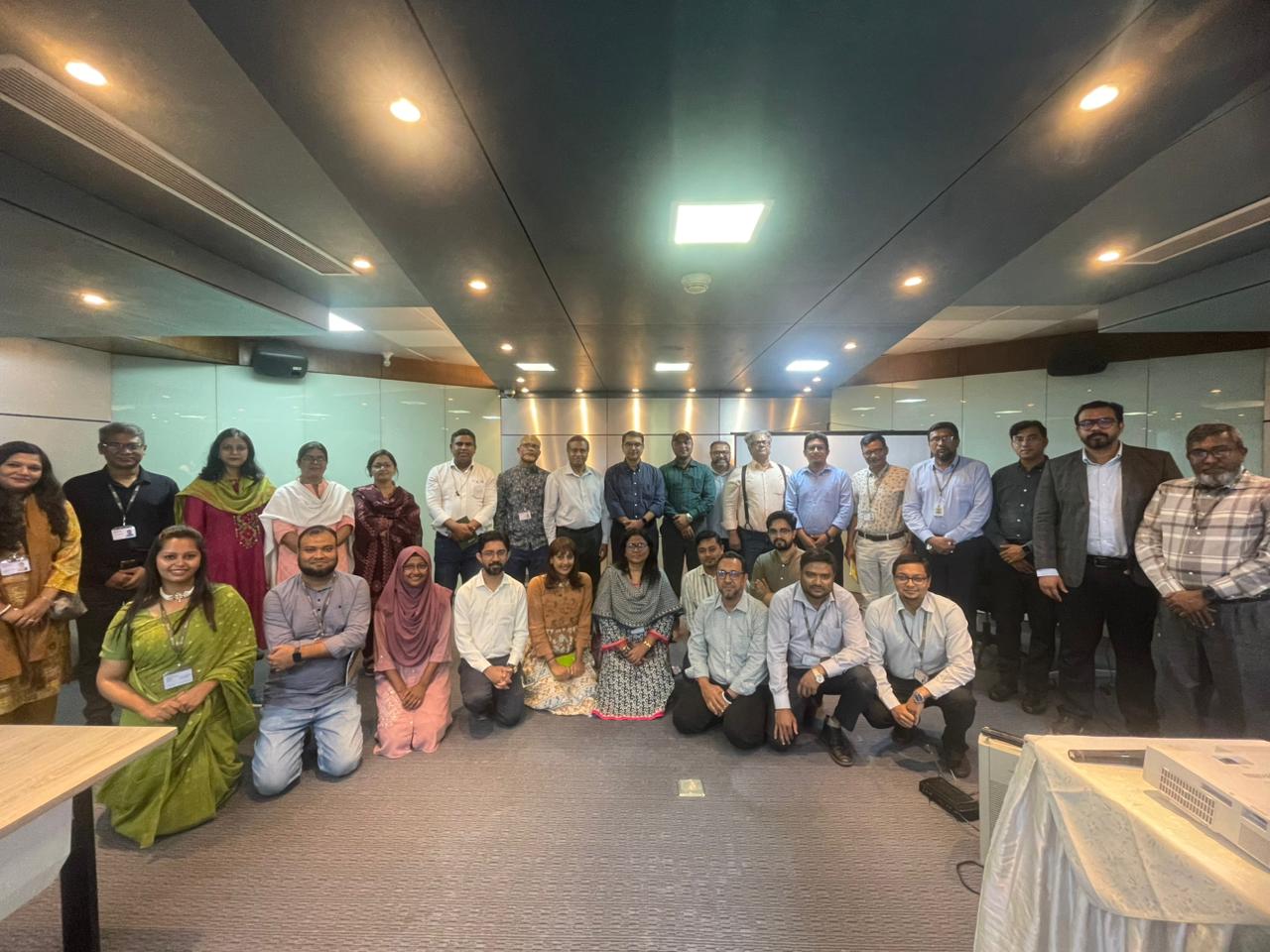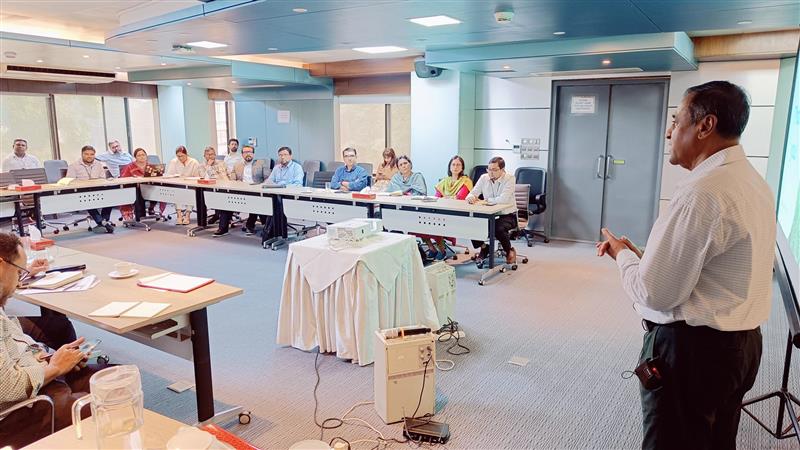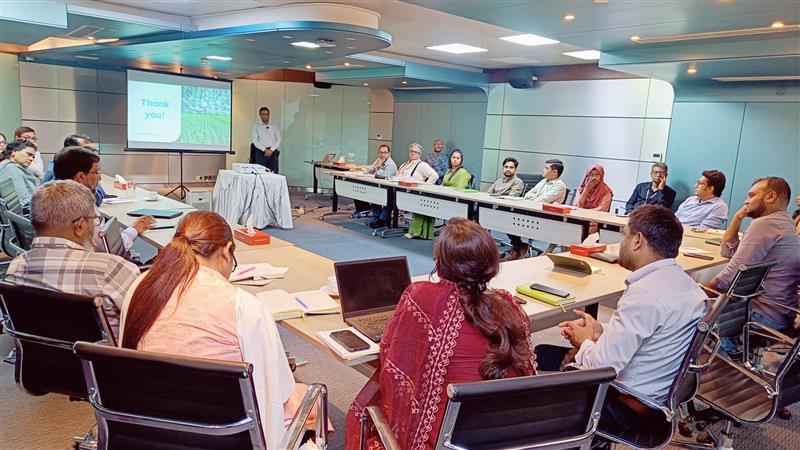BRAC and IRRI experts deliberate on smarter water management in Bangladesh

Dhaka, Bangladesh (23 October 2025) — As Bangladesh faces mounting challenges from climate change, managing water resources has become central to ensuring the nation’s food security. The climate vulnerable zones of the country like the Barind Tract and the coastal belt are already confronting erratic rainfall, salinity intrusion, and water scarcity that threaten the livelihoods of millions of smallholder farmers.
Recognizing the urgency of this challenge, BRAC’s Poverty Alleviation Cluster and the International Rice Research Institute (IRRI) convened a learning session on “Water Resources Management for Ensuring Food Security in Two Distinct Climate Hotspots in Bangladesh.” The session brought together scientists, development practitioners, and program leaders from both organizations to bridge the gap between research insights and field realities, and to identify new opportunities for joint action.
The dialogue underscored a shared mission: to promote climate-resilient and sustainable agricultural practices that align with Bangladesh’s national goals for food security and climate adaptation. Discussions centered on how water-smart technologies and collaborative research can empower farming communities to withstand and adapt to the growing pressures of climate change.

Presenting IRRI’s ongoing work, Dr. Manoranjan Mandal, Scientist at IRRI Bangladesh, outlined key research innovations in water management tailored to both the Barind and coastal regions. His presentation showcased water-efficient rice production systems, adaptive irrigation strategies, and the use of Alternate Wetting and Drying (AWD) technology—a proven approach that reduces water use and carbon emissions while sustaining crop yields under water-limited conditions.
In response, Hossain I. Adib, Senior Director of BRAC’s WASH Program, emphasized the strategic importance of integrating science-driven approaches into BRAC’s upcoming Strategy 2026–2030. “Collaborating with IRRI will help us align our future programs with science-based water management innovations that strengthen climate resilience and ensure food security for vulnerable communities,” he said.

Participants also discussed ways to scale innovations through joint research, piloting, and implementation programs. Both organizations expressed interest in creating shared learning mechanisms and innovation platforms to tackle the interconnected threats of salinity, drought, and water scarcity that undermine agricultural productivity and rural livelihoods.
The learning session concluded with a commitment to continue the dialogue and co-develop actionable, evidence-based solutions that integrate agricultural innovation, poverty reduction, and climate adaptation. Through this collaboration, BRAC and IRRI reaffirmed their dedication to securing the future of farming and food in one of the world’s most climate-sensitive nations.